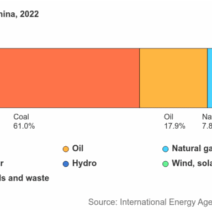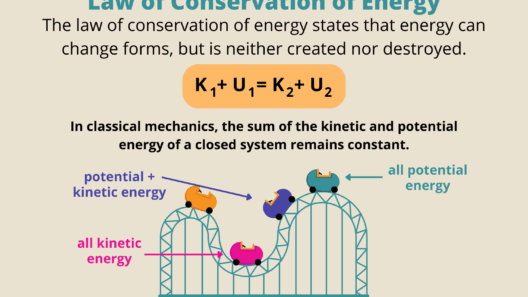Conserving energy is imperative for individual households and society at large, as it not only helps to lower utility bills but also plays a significant role in safeguarding the environment. Transitioning towards energy efficiency doesn’t require a complete lifestyle overhaul; even modest changes can yield substantial outcomes. Herein lies a comprehensive guide to practical tips for saving energy in your daily life.
Understanding the importance of energy conservation can motivate one to adopt sustainable practices that reap both ecological and economic benefits. By taking conscious steps, individuals can significantly reduce their carbon footprint while also fostering a culture of sustainability.
In the coming sections, we will explore various domains of daily living where energy conservation can be prioritized. These include household appliances, heating and cooling practices, and behavioral adjustments.
Maximizing Household Appliance Efficiency
Household appliances constitute a large portion of energy consumption, and enhancing their efficiency is paramount. Utilizing energy-efficient appliances can drastically reduce energy usage in the home. When purchasing new devices, look for the ENERGY STAR label, which signifies that the appliance meets energy efficiency guidelines set by the U.S. Environmental Protection Agency.
Regular maintenance of existing appliances is equally essential. For instance, cleaning refrigerator coils every six months can improve performance, ensuring it uses less energy. Moreover, replacing air filters in heating and cooling systems regularly boosts efficiency and prolongs the lifespan of the units.
Additionally, using smaller appliances for minor tasks can diminish energy usage. For example, a microwave or toaster oven consumes less energy than a full oven. Harnessing these smaller tools for cooking can lead to significant savings over time.
Incorporating energy-efficient practices, such as washing clothes in cold water and air-drying whenever feasible, can also help save an astonishing amount of energy. Cumulatively, these small adjustments can make a remarkable impact on overall energy consumption.
Optimizing Heating and Cooling Solutions
Heating and cooling systems are responsible for the majority of energy consumption in residential settings. Therefore, optimizing them is crucial. One effective way to decrease energy usage is to maintain a moderate thermostat setting—aiming for 68°F during winter months and 78°F in summer. Additionally, layering clothing during cold months can lessen the need for heating, while natural ventilation can ease the dependence on air conditioning in the summer.
Another vital tip is to ensure proper insulation in your home. Insulation prevents heat from escaping during winter and keeps unwanted heat outside during summer, thereby reducing the workload on HVAC systems. Sealing leaks around doors and windows also helps to maintain indoor temperatures effectively.
Utilizing ceiling fans can complement heating and cooling systems as well. During the summer, running the fan counter-clockwise creates a wind-chill effect, making it feel cooler, while in winter, switching it to a clockwise direction can help circulate warm air trapped near the ceiling.
Adopting Smart Home Technologies
In the digital age, incorporating smart technologies into everyday life serves as an ingenious approach to energy conservation. Smart thermostats, for instance, learn a household’s schedule and can adjust heating and cooling accordingly. This ensures that energy is not wasted when nobody is home.
Smart plugs and energy monitors provide real-time data about power consumption, allowing users to identify energy-hungry devices. By being aware of this information, users can switch off devices that consume energy unnecessarily, even in standby mode. For example, a home computer left on when not in use still draws power.
Moreover, transitioning to LED lighting can result in energy savings of up to 75% compared to traditional incandescent bulbs. LED lights not only consume less energy but also have a longer lifespan, which contributes to resource conservation by reducing waste.
Behavioral Adjustments that Make a Difference
Behavioral changes, when aggregated, can lead to profound energy savings. Small but impactful practices include being cognizant of turning off lights in unoccupied rooms and utilizing daylight whenever possible. Embracing natural light reduces the reliance on electric lighting, thereby conserving energy.
Setting a timer for electronic devices or opting for sleep modes enables them to consume less energy when not in active use. Furthermore, unplugging chargers and devices that are not in use can eliminate phantom energy loads—an energy drain that occurs even when devices are switched off.
Encouraging family members to adopt energy-saving practices fosters a culture of sustainability at home. Hosting discussions regarding energy conservation can motivate everyone to share ideas and implement changes, collectively contributing to the goal of reducing overall energy consumption.
Commitment to Always Learn and Improve
Creating an energy-efficient household is an ongoing journey rather than a one-time undertaking. Monitoring energy bills and assessing consumption patterns can guide individuals in making informed decisions regarding energy use. By taking deliberate steps towards conservation, households can contribute to global sustainability efforts.
In conclusion, conserving energy requires a multifaceted approach. By maximizing the efficiency of household appliances, optimizing heating and cooling systems, integrating smart home technologies, and making behavioral adjustments, individuals can significantly reduce their energy consumption. This not only results in financial savings but also plays an essential role in promoting a more sustainable and environmentally friendly world.
Every small effort counts, and collective actions can lead to significant change. Adopting these practical tips for saving energy in daily life is a noble endeavor that benefits both the individual and the planet.








